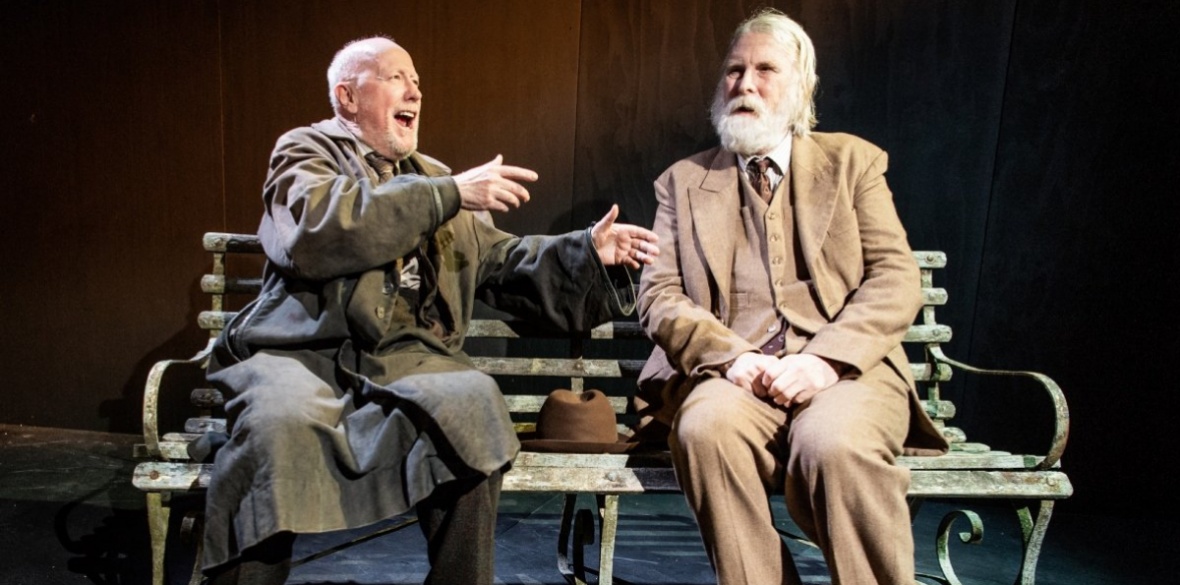This is the last article you can read this month
You can read more article this month
You can read more articles this month
Sorry your limit is up for this month
Reset on:
Please help support the Morning Star by subscribing here
Beckett Triple Bill
Jermyn Street Theatre, London
THIS exploration of ageing and memory through three iconic short plays by Samuel Beckett is an intimate experience in more ways than one.
The space is so tiny that any scenery or props seem to fill it and leave little over for actors in this production by Trevor Nunn.
That’s a plus because the plays themselves, so precise and detailed in their exposition of the human mind, need to be experienced up close to scrutinise the actors’ faces as they respond moment by moment to the inner world of their own private thought.
Beckett shows the almost infinite capacity of our mental life, in which anything can be imagined or recalled but never to order. He demonstrates how, as age progresses, the wild and wayward surges of the brain overpower what is true in our lives and render the reality merely incidental to what we remember and how we remember it.
In Krapp’s Last Tape, first performed in 1958, James Hayes is the vulnerable old man bravely confronting his past, as recorded by his younger self on a then high-tech reel-to-reel tape recorder.
What he and we hear is strange yet familiar — a perception of what was then present but is now past and, as such, a confusion of what is real and what is not, what is known and what is not.
In Eh Joe, the eponymous protagonist (Niall Buggy) sits in fearsome isolation on the edge of a grimy, unmade bed, while a soft, seductive female voice (Lisa Dwan) torments him endlessly with the crimes he may or may not have committed.
The Old Tune concludes the trio, with Buggy again marvellous. He and a white-bearded David Threlfall enact two old men on a park bench, conversing as only old age allows them.
Their brains are scattered and unbiddable, their grasp on the present fleeting and their memories, amid a blurred awareness of things too many to recall, are peppered with urgent imagery.
The acting is splendid, while the atmospheric use of space by Louie Whitemore is memorable and the various visual and sound effects, the latter by David Howe, beautifully complement the words which tumble out in a luminous but unruly cascade of mental mayhem.
Something of a period piece, it’s a largely sombre evening. But Trevor Nunn pours all his passion for Beckett into the production and we are not disappointed.
Runs until February 8, box office: jermynstreettheatre.co.uk.










